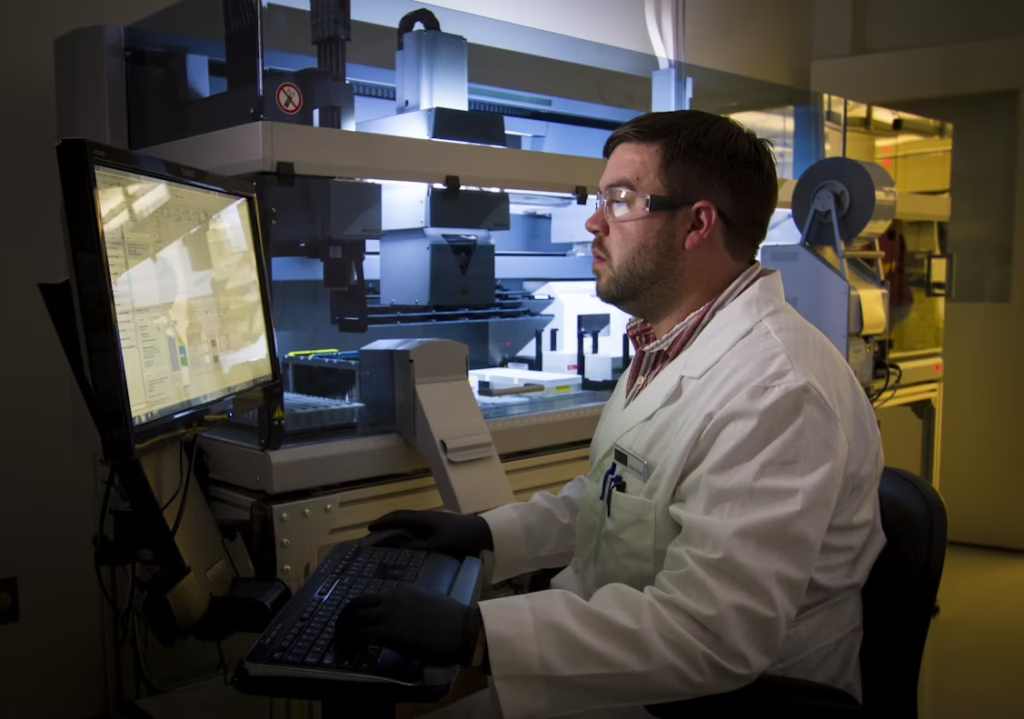In a groundbreaking development for cancer care, a new artificial intelligence (AI)-powered technology has been unveiled that significantly improves the early detection of various types of cancer. On January 26, 2025, researchers and healthcare professionals announced that AI-driven diagnostic tools have successfully detected cancers in their earliest stages, with a higher level of accuracy and speed than traditional methods. This breakthrough promises to revolutionize cancer treatment and survival rates by enabling earlier intervention and more personalized care.
The AI technology, which uses advanced machine learning algorithms to analyze medical imaging data, has been tested in a wide range of cancers, including breast, lung, and colon cancer. By training the AI system on vast amounts of data from medical scans and patient histories, the technology is able to recognize subtle patterns and anomalies that may go unnoticed by human doctors. Early trials have shown that the AI can detect cancerous cells up to 30% earlier than traditional diagnostic tools, allowing for earlier, less invasive treatments.
“Early detection is the key to improving cancer outcomes,” said Dr. Rachel Simmons, a lead researcher on the project. “This AI system has the potential to save lives by identifying cancers before they spread, giving doctors a better chance to treat the disease effectively and with less aggressive treatments. The speed and accuracy of the technology mean that more people will be diagnosed at a time when their chances of successful treatment are significantly higher.”
The AI system works by processing various types of medical imaging, including mammograms, CT scans, MRIs, and biopsies. It can detect minute differences in tissue structures and cell patterns that might indicate the presence of cancer, which might be difficult for human eyes to detect, especially in the early stages. The technology has been trained on millions of medical images, learning to distinguish between benign and malignant growths, and providing doctors with comprehensive, data-driven insights.
One of the major advantages of AI-powered cancer detection is its ability to continuously improve over time. As the AI system processes more data, its accuracy in identifying early-stage cancers increases. Additionally, the technology can help standardize diagnoses, reducing the risk of human error and ensuring that patients receive timely and accurate results.
This breakthrough has been met with optimism from the medical community, as it could help alleviate the burden on overworked healthcare professionals, allowing them to focus on more complex cases while relying on AI for routine screening. Hospitals and medical centers around the country are already beginning to integrate this technology into their diagnostic workflows, with plans to expand its use globally.
The implications of this technology extend far beyond just early detection. By enabling earlier diagnoses, AI could reduce the need for more invasive procedures and treatments, such as chemotherapy and radiation, ultimately lowering healthcare costs. It could also lead to the development of new, more targeted therapies tailored to the specific genetic and molecular characteristics of each patient’s cancer, improving treatment outcomes and reducing side effects.
While the technology is still in the early stages of widespread adoption, experts believe that it could be a game-changer for cancer care in the coming years. “We are on the cusp of a new era in oncology,” said Dr. Michael Patterson, a renowned oncologist. “AI has the potential to not only improve the accuracy of cancer diagnoses but to also transform how we approach treatment, making it more precise, personalized, and effective.”
As of 2025, the integration of AI into cancer care is a promising step forward, offering hope for millions of patients worldwide. With early detection being one of the most critical factors in improving cancer survival rates, this technology has the potential to save countless lives and redefine the future of cancer care. As AI continues to evolve, the medical community remains hopeful that it will continue to play a pivotal role in the fight against cancer.
